#the main three olympians
Explore tagged Tumblr posts
Text
how tf do I tag riordanverse related posts literally the bane of my existence
#riordanverse#percy jackson and the olympians#pjo#hoo#heroes of olympus#toa#trials of apollo#percy jackson the character vs percy jackson and the olympians#kills me#some people tag “pjo hoo”#why?????#do i tag all three main series' EVERY TIME????#so many questions
23 notes
·
View notes
Text
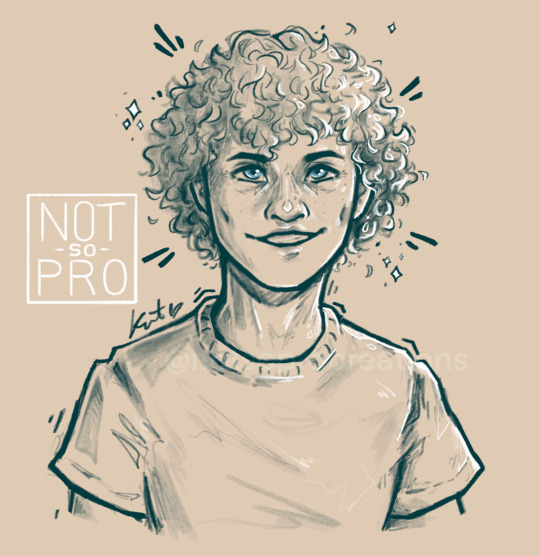
The show really reignited my childhood pjo fixation at the worst possible time <3
#click for quality as always#the show is so fun bte im enjoying it so much#the main cast is so strong#its also. VERY fun watching non book readers stake their ENTIRE LIVES on completely incorrect predictions#and HEY first post on new art account?#could i have done an intro post first? no im too akward for that#also.#yes ive had to redo this post three times. for all the times i posted it to the wrong blog.#so we lost 50% of the other tags along the way#notsoproart#NEW BLOG NEW TAGS#percy jackson#art#fanart#artists on tumblr#pjo#pjo series#percy jackon and the olympians#percy jackson fanart#i just think hes neat#digital art#sketch#pjo fanart#pjo art#idk what tags we use anymore forgive me while i figure this out
53 notes
·
View notes
Text
in my head i still kind of see book percy and tv show percy as two different characters, but the MOMENT i saw leah as annabeth i was like “yup, that’s annabeth chase right there”
#she just RADIATES annabeth energy it’s so crazy#like even the way she STANDS reminds me of her#this girl is gonna blow us all away i swear#and aryan looks amazing too!!! such a great casting for grover#i love all three of the main cast so so much i would die for them#i speak#percy jackson#percy jackson and the olympians
16 notes
·
View notes
Text
partners in crime
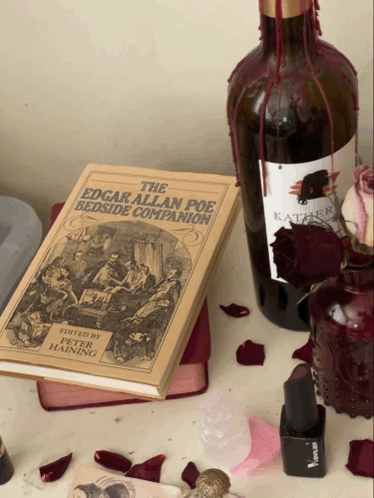
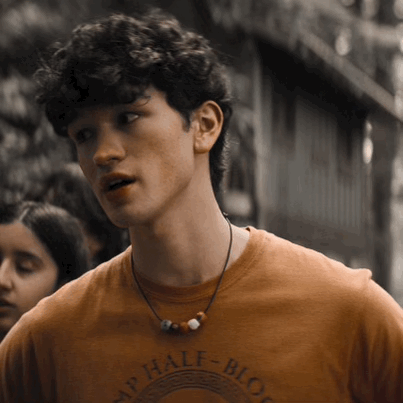
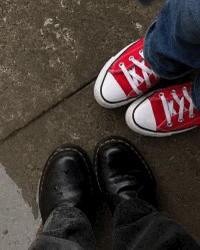
luke castellan x fem!dionysus!reader [the trouble!verse]
MAIN SERIES MASTERPOST
summary: few things are certain in this life as a demigod, but one thing is for sure— you can’t fight fate when it pulls you and luke castellan together, over and over again. two young people who hate the gods are more like them than they think, for better or worse. annoyances to best friends to lovers
things to know: dionysus!reader's nickname is trouble & most of these can be read as standalones!
here's a playlist (spotify & apple music links now available!)
child of dionysus headcanons!
trouble!verse moodboard 1 & moodboard 2 & college!trouble by the lovely @24kmar
deleted scenes from a different universe (AUs)
play the extended cuts (blurbs from in-between)
character study: luke castellan & trouble
any works, updates, thoughts, musings, etc about this series will be tagged under #trouble!verse !
key: fluff - ☼ angst - ☽ smut - ☆ jo's favorites - ᥫ᭡
[rewind to before] pre-established relationship
trouble always finds me (trouble!reader origin story) 1.7k ☼
The one where he could tell you were trouble from the day he met you. (You're an annoyance, but not an enemy)
entropy 3.6k☼
The one where you both blur the lines between annoyance and admiration. (the promise of becoming partners in crime)
buddy system 4.2k ☼
The one where he comes with you to rescue your younger twin brothers, Pollux & Castor. (this is as close to a real quest that Mr. D will give you--might as well take someone you trust!)
somebody's angel 4.4k ☽
The one where you convince him he’s pretty, even with a scar. (songfic - Die Alone - Finneas)
feed the fire 1.2k ☼
The one where his focus is not on spilled food, but on you. (Luke realizes this is more than playful banter)
bedtime stories 2.4k ☼
The one where night shift with him runs late, but you don’t mind at all. (the both of you have feelings you want to admit, but duty calls!)
crazy little thing 3.4k ☼
The one where he uses all his drachmas to make you smile on Valentine's Day. (the Apollo kids are better matchmakers than Aphrodite, sometimes)
anything you want 1.6k ☼
The one where you and him have your first kiss. (You've always loved teaching the story of Orpheus and Eurydice; except when your Orpheus runs away from you)
said he likes crazy 2.1k ☼ ☽
The one where only he can help you with a bad day, even if he's avoided you since your first kiss. (For being a son of Hermes, he has a way of calming your nerves)
[pause and remember us like this] established relationship
play pretend 5.1k ☼
The one where Mr. D catches you two in the act, but you and him aren’t exactly together yet. (Drunk words are sober thoughts. Your dad just wishes Luke told you instead of him)
a wish your heart makes 1.4k ☼ ☽
The one where you share dreams, burn cookies, and it still reminds him of home. (The dryads will probably ban you from the kitchen after this)
star crossing 4k (NEWEST ADD) ☼
The one where both your dreams come to life for a night (Crossing the stars for love is easier said than done)
to see the chaos through ☽
The one where he remembers he was never a good guy, just yours. (Luke makes the ultimate deal with the devil in order to save you)
not your goddess ☽
The one where you both know the best of days eventually have to come to an end. (songfic - Goddess - Laufey)
don't blame the kids ☼
The one where you both chaperone a trip to Mount Olympus. (the Olympians are bigger gossips than you thought they'd be)
trouble's coming for you 3.7k ☼
The one where Percy meets his two favorite counselors at Camp Half-Blood. (three times Percy is oblivious (and in the way) and the time he realizes you and Luke are in love)
now that we're older 3.5k ☼
The one where he asks if you can stay the night even if all of cabin 11 makes fun of him. (Luke is tired of the routine. He just needs his girl)
if you need to be mean (be mean to me) 1.5k☽
The one where he leaves before you wake up. (songfic - I Don't Smoke - Mitski )
[fast forward until we meet again] post-tlt
lovers, or partners in crime 2.1k ☽
The one where Annabeth and Percy think you’re guilty too. (the last day leading up to Luke's betrayal)
love like a blister: the five stages of loving losing luke 4.7k ☽
The one where you learn to mourn someone even if they’re still alive. (the five stages of grief after facing a loss)
to catch a thief 3.7k ☼ ☽
The one where duty calls at Camp Half-Blood. Again. (Your reunion with Luke isn't quite what you expected.)
solipsism 5.3k ☽
The one where you finally pray to Hestia to keep your home safe, even if he's also trying to destroy it. (the four times Luke uses Backbiter to visit you during college ft. the first time you trust a god to help you)
forever falling: luke castellan & his four great loves 4.3k ☼ ☽
The one where he falls from grace and still thinks of you. (the four great loves of Luke Castellan’s life and how it will end up killing him)
love me dry 4.5k ☼ ☽
The one where he meets you at his mother's house, though both of you didn't expect the other to be there. (a glimpse into May Castellan's idea of a perfect day)
when the curtains close 5.3k☽
The one where you lose two people in the Labyrinth that day. All strings are cut. (Annabeth and Pollux find out the biggest difference between you and Luke.)
asking for trouble ☽
The one where Luke's final wish is to see you. (He's himself again, and all he wants is to find out if the trouble was worth it all)
as above, so below ☽ ☼
The one where you plead your case with the gods of Olympus. (The one thing the fates didn't expect was how much you'd both be like your fathers; in a way, you and Luke didn't see it coming either)
ask to be added to luke/general taglist 🥹
#made by ma1dita ♥︎#luke castellan x reader#pjo series#luke castellan x dionysus!reader#pjo imagines#luke castellan x reader fanfic#percy jackon and the olympians#percy jackson and the olympians#🪽#trouble!verse#percy series#pjo x reader#jo's navi <3
2K notes
·
View notes
Note
I heard you talking on a recent OSPod about Hades, and as someone who very much can get ADHD-yoinked into games, it got me curious, but I'm...not great at video games and have found Dark Souls-y games where you try over and over and keep failing at the same task kind of frustrating. How's your Hades experience been in those regards? (although I'm not sure your general game skill)
Hades feels like it's really carefully designed to circumvent those frustrations.
I also hate the feeling of lost progress, which had me wary about playing a roguelite defined by constantly trying and mostly failing, but by far the most helpful part of the game design is that Zagreus also hates it, so it feels like the game and I are on the same page about it.
It also helps that most of the actual, tangible progress in the game is bound up in advancing the character arcs, which isn't a totally skill-free experience since it involves finding a couple characters out in the underworld, but a lot of it can be done back in the House of Hades, so every time you lose and die you can run around having conversations with everyone, almost all of which will be new and unique and advance your arc with them. If a character doesn't have a new interaction for you, you usually just can't find them on the floor, so there's very little time-wasting.
Speaking of, there's a lot of advancement that can only be done in the House of Hades, and a lot of it involves resources you can actively choose to seek out on runs. I did a couple runs today where my only goal was getting the last of a specific olympian's Boons so I could fill out their Minor Prophecy achievement and reap the rewards, and everything after that was just a bonus. This means the game is passively encouraging the player to develop secondary objectives beyond just making it to the end of the game again. It also helps that making it to the end of the game basically just gives you a weapon-unlocking resource and another small slice of conversation with [EXTREMELY OLD SPOILERS] so while it feels important, and is necessary for advancing towards the true ending of the game, it's not so overwhelmingly rewarding that you feel absolutely crushed when the final boss takes you out halfway through his second healthbar again.
You also benefit very greatly from not playing the game the same way twice - using new weapons or adding new challenge modes is the only way to re-acquire the unique boss rewards for the three main regions of the underworld, instead of the more generic resources that replace the unique ones after you win them for the first time, which means instead of feeling like you need to optimize a winning build and then use it every time, you're encouraged to play with the other weapons that you might find unwieldy or annoying, and if you manage to beat even the first boss with them, you'll be disproportionately rewarded. Also, on every run a random weapon will be empowered to give you bonus resources if you choose to use it, so even if you're a strictly melee-only main you might find yourself willing to figure out how to use the bow in exchange for the extra gems. The Boons you get also dramatically change the strategy you're likely to naturally fall into over the course of fighting your way out - some builds are extremely melee-based, others just boost your ranged abilities to the point that you can mostly just dash around the battlefield while your Casts chew through everyone's healthbar at top speed. So when you reach the final boss, you're not going to be using the same strategies, and even if you lose, it feels less like you had a skill issue and more like you've learned something to look out for or try out next time around. The final boss's strategies and moves don't change either, so you'll know what to expect every time even as your own moveset might be completely different from run to run.
In my personal experience, I have a pretty good feel for when a game is disappointed in my performance. Nothing says "the designers didn't expect you to get stuck here" like endlessly looping dialogue or not-so-subtle hints that you can knock down the difficulty if you need to. Hades has thus far done this to me very little, and only in specific areas - even if I'm no longer getting unique banter with Theseus every time I kick his ass, I'm still having unique conversations with Asterius in the same region and it doesn't feel like I'm anywhere near done with the dialogue back in the House. Zagreus's dialogue when he enters the same three boss arenas will also randomly go from seemingly-interchangeable lines of "yep it's this boss again" to much more unique angles that legitimately change the game from then on. Yesterday, after killing the bone hydra something like a dozen times, he randomly decided to nickname it Lernie, and now he consistently calls it Lernie and every time I kill it the victory banner says "LERNIE VANQUISHED". Today he got Tisiphone to say his name instead of just "murderer" all the time. The game knows you're going to be fighting these guys a lot, and this tells me I haven't outstayed my welcome in the anticipated main timeline of gameplay.
If I have a frustration, it's that I'm not always sure that what I'm doing is advancing the character plotlines, and you can only talk to a character once on any given visit to the House. The game kind of helps you out here, your little information codex will tell you stuff like "Learn more by having X more conversations with this character" or "learn more by deepening your relationship with this character" but it can still be pretty vague and opaque. There's no dialogue trees, Zagreus basically just says what he wants, so when, for instance, Achilles indicates that I should talk to Nyx about maybe getting Orpheus's deal with Hades undone, it's a little frustrating that I can't then go over to Nyx and ask her about that. Or, in fact, ask her about it at all in any of the dozen runs I've done since that nugget got dropped. It's not a game-breaker, but it is a little frustrating. On the other hand, this is clearly intentional, because this means you're tempted to get back into a run as quickly as possible, because then when you die more conversations will have unlocked back at the house - but also, to deincentivize just running out and dying on purpose to get those dialogues going, there are some characters who will only appear in the House if you get far enough into the run to deal with them, and certain characters whose arcs and dialogue only advance if you find and talk to their missing loved ones out on the run. So you'll always have something new back at the House, but you're strongly encouraged to get as far as you can before you die, because the farther you get, the more you'll have to do when you get back.
The game is basically designed to never, ever make you want to sit still. You can quickly exhaust everything there is to do in the house, and that makes you want to go out on a run and see what new things will happen. Then while you're on the run you have the benefit of randomization keeping things interesting and making you make plans for the next time you encounter a given character. It's got a good rhythm to it!
435 notes
·
View notes
Text
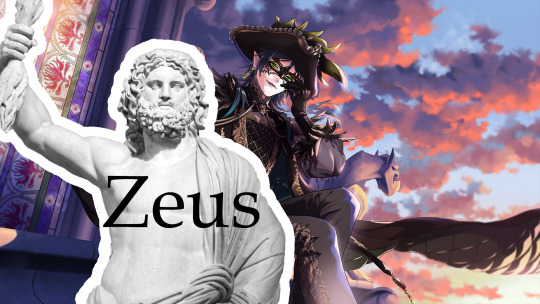
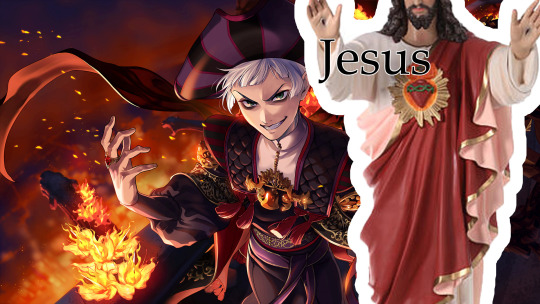
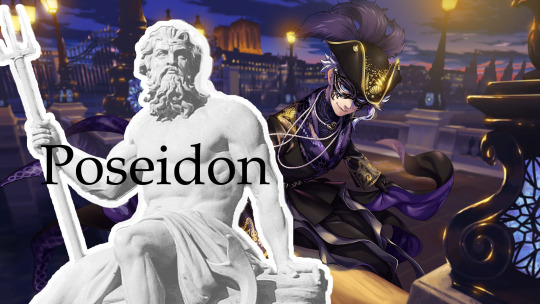
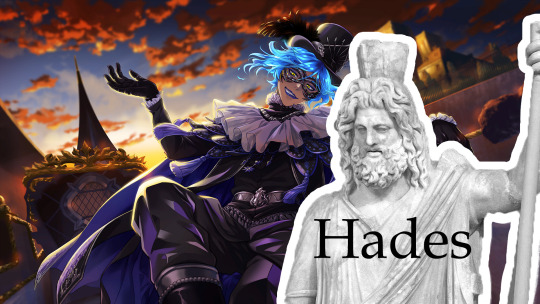
Nobody: Me at 3 AM: Glorious Masquerade represents the confrontation between polytheistic and monotheistic worldviews
Or "The Big Three of Olympus vs One Christian God" in the Glorious Masquerade event
Content Warning: Greek Mythology, religion, Christianity, Glorious Masquerade event spoilers
Note: I talk about things in this post from a researcher's point of view, in a descriptive and comparative manner mostly. Just some observations.
I've already discussed a similar concept before - Idia, Jade, and Sebek representing Hades, Poseidon, and Zeus, the "Big Three" in Greek mythology, the most powerful and important gods of Olympus - during the Harveston event. See the post here.
However, in the Glorious Masquerade, the situation becomes even more peculiar because the SSR characters are dorm leaders - those who are in charge. And then there's Rollo, who is twisted from Frollo.
Note: I will consider all sources of inspiration for Rollo, including the book and the musical, which were confirmed by Yana herself to be inspirations for Rollo.
What? Why? Who?
3 vs 1. The Big Three of Greek Pantheon vs The One God, who embodies 3 in 1 - the Father, the Son and the Spirit.
The Big Three are the three most powerful gods among the Olympians - Zeus, Poseidon and Hades.
Zeus commands the sky, lightning, kingship and summon any weather conditions.
Poseidon manipulates water, storms and earthquakes.
Hades has dominion over the dead and undead, darkness, earth-related disasters, and metals and jewels.
*By the way, lightning was considered just Zeus throwing a temper tantrum, and what happened when Malleus got angry? Right, he started throwing lightnings left and right.
And now we have Rollo. Twisted from Frollo, who, as we know was a religious man (especially in the book where he is a priest, not a minister).
And despite there being other characters, such as vice-president and the assistant, they aren't "real" or “important” characters like Rollo.
So we can say there is only one (1) main character in this event.
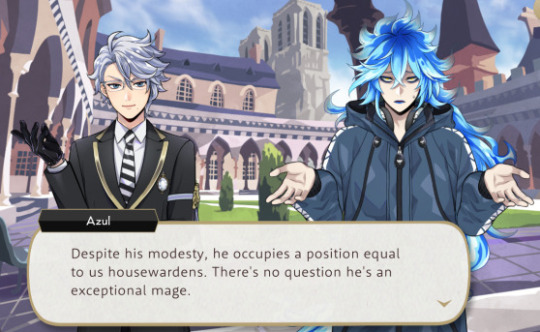
2. 7 Dorm Leaders vs 1 Head of the Council
As is well known, Ancient Greek mythology features many major gods, each controlling different aspects of life (or representing them, or serving as patrons). This makes Ancient Greek religion a polytheistic system - meaning it has multiple gods - akin to the Great Seven and the dorm system at NRC.
The Dorm Leader Council functions much like a small pantheon. Not to mention NRC is located on upper hills, which resembles a mountain (Olympus) if we look at the landscape of the Sage Island.
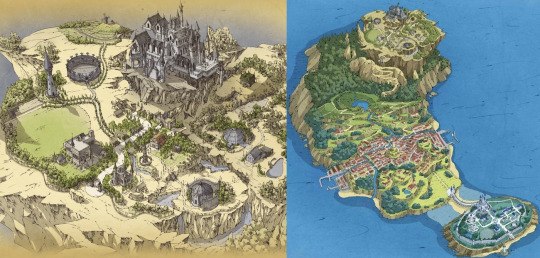
On the other hand, Christianity only has one God, making it monotheistic religion. There are multiple saints in Christianity, who are patrons of different aspects of life, however it is important to note that these saints do not control - they are more like the intercessors between man and God.
Even the NBC itself is focused on one Villain and has one statue in the yard, not the 7 (the "pantheon" of NRC). And NBC itself doesn't have Dorm system like NRC.
3. Oral vs Written
Greek religious tradition is primarily oral, with legends and stories passed down through generations by word of mouth.

In contrast, Christianity is predominantly a written religion, where the written canon holds great importance.
How is it important here?
Well, in this event specifically the NRC guys spend their time walking around and commenting on things. We learn some of their lore and thoughts on various topics through dialogue. Even Professor Trein reveals his past verbally telling about it. Naturally, it’s a game mechanism. But since we’re talking about such details….
On the other hand, the most important part of Rollo lore is found by the Big Three in written form - Rollo’s diary. It's also noted how Rollo prefers writing above all else. He writes in his diary, sends letters, and drafts invitations. While this may not apply to the NBC in general, since we're focusing on Rollo, this detail is worth considering as well.
4. Our guys vs That One
Another difference between the two religions is that the Greek gods had flaws that made them more similar to humans. They had tempers and they often held grudges. This made the followers of the religion not want to be like them but, instead learn from them and their shortcomings, frequently through fear.
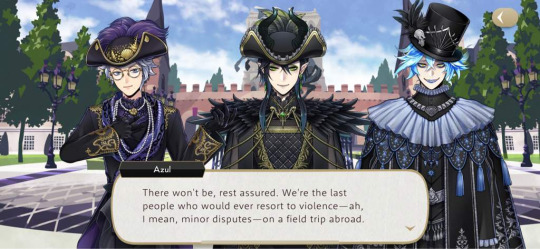
In contrast to the flawed gods of Greek mythology, Jesus is portrayed as a man who is to be aspired to, more so than the Greek portrayal of a god; who the audience learns from (imitating in a way), rather than obeys.

Our NRC boys are someone we know and who we’re familiar with. We know their struggles and fears, their dark past. Even the guys in charge of each dorm - the Dorm Leaders - are not so distant from the regular students. Well, more of less.
Whereas Rollo is described by all the characters we’ve met at NBC (and even from his vignette) as someone who is amazing, excellent, wonderful and so…exemplementry. Rollo, at the same time, distances himself from everyone.
5. Vertical vs Horizontal
A small but interesting observation is that many monotheistic religions, including Christianity, often have a “vertical mindset” - symbolizing a relationship between the human and God.
In Christian cosmology, we often imagine a vertical world structure: Hell at the bottom, the human realm in the middle, and Heaven above.
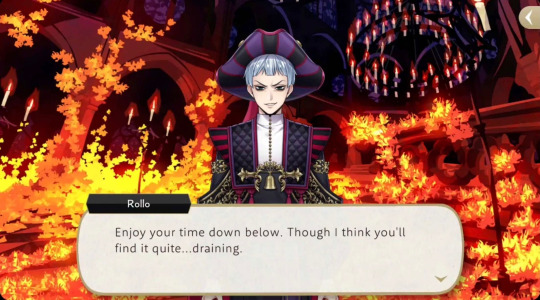
In this event, we also experience vertical movement when things get serious. Initially, when it's peaceful and fun, we mostly walk around the town (mostly horizontal, not including the lower parts).
However, when the action begins, Rollo first sends us downward into the sewers. From there, we start moving upward. The ascent of the tower is highly symbolic, as we are literally ascending towards the sky where Rollo awaits us (with his “judgment”)
6. Masks
The whole masquerade theme is, of course, a nod to the cartoon and part of the game feature to get the characters to dress up.
But let’s remember that in Ancient Greece, masks played a significant role in theater, particularly in tragedies and comedies (twst features elements of both). In general, it is known that masks represent hidden nature, transformation, and more.
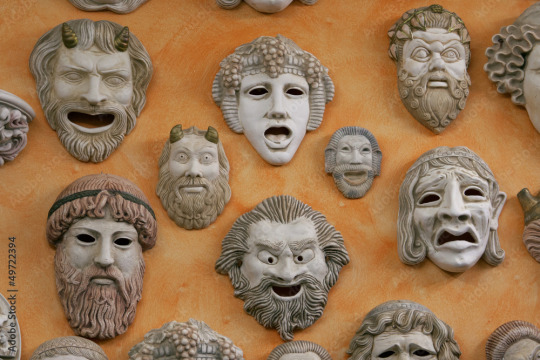
Interestingly, only our NRC squad wears masks and costumes. We even encountered some Royal Sword Academy students, but they were not given costumes (again, a game feature, but still noteworthy).
On the other hand, there's Rollo, who isn't wearing a mask or even a costume. He doesn’t need to. He is who he is, with no need to transform into something else, as he represents the One, in our comparison here.
What's even more interesting is that, despite not wearing a physical mask, Rollo is the one with ulterior motives in this event, and we only learn his true face later on. He metaphorically takes the mask off, even though he never wore one in the literal sense.
7. Catholic Guilt
The last but not least - Rollo's punishment, which, perhaps is the most fitting and cruel outcome for him. Rollo, after being defeated, expects harsh punishment because he is ruthless with himself and assumes others will treat him the same way. He failed and he expects to be punished. However our Big Three surprise him by concealing the truth and allowing others (the NBC mobs were the first to thank him for his bravery at the tower) to believe that Rollo was a hero. This situation forces Rollo into a state of internal torment, where he must live with the guilt of his actions while being praised for something he didn't truly do.
Rollo's punishment is psychological, forcing him to confront his guilt and shame in isolation. They choose leave him one on one with his Sin.
On the contrast, in Ancient Greek mythology punishments were often cruel and involved physical pain. One of the most popular example would be of course the myth about Prometheus, which, by the way involved Zeus.
And the way Big Three dealt with Rollo was truly cruel in its own way.


(from an interesting article about Greek Gods and punishment - here)
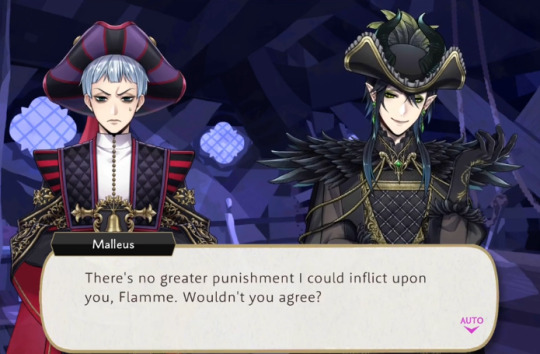
Fin
I left out some obvious notes like Malleus having horns, Rollo hating on magic etc.
Naturally, there may be other details I haven’t mentioned, so feel free to add any additional insights!
#the semester has just started but I'm already in the mood#was fighting the urge to add Comedia dell'Arte masks here#twisted wonderland#twst analysis#glorious masquerade#disney twisted wonderland#rollo flamme#malleus draconia#idia shroud#azul ashengrotto#twst spoilers#tw religion
196 notes
·
View notes
Text
🫰🏻Masterlist 🫰🏻
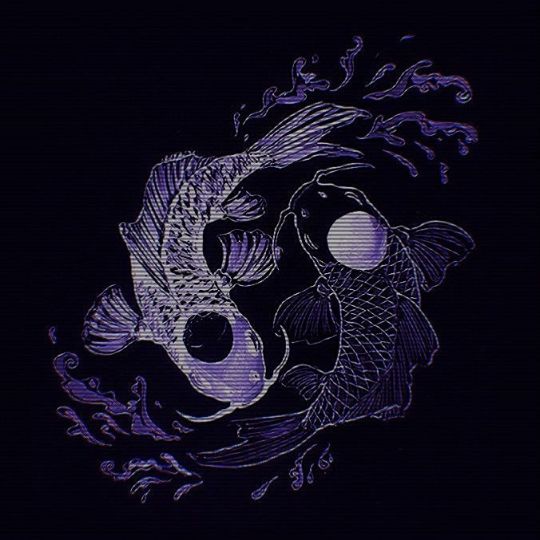

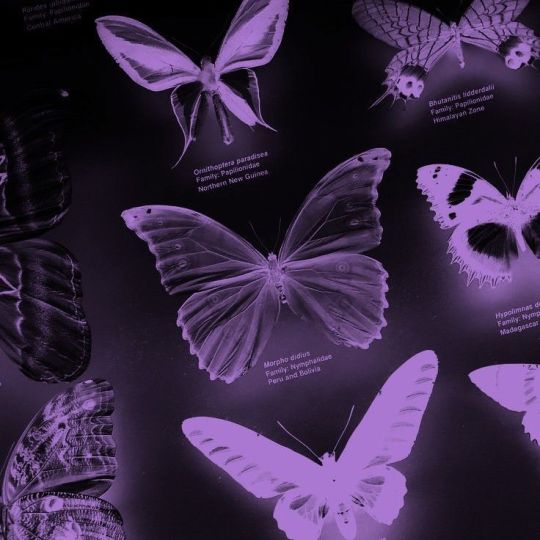
Hello! Welcome to my blog! I hope you enjoy some of my writing! I will update when I have something written so I can promise no consistency. My main motto is to have fun so here I am to do so! Tada ~ Have fun! ♡(◕ᗜ◕✿)
Hogwarts AU
Social media ✂
Social media au ☀ Prompt list ☾
Series ✂
Delivery Express ✿ Badger express ★ Money mail ☼
George Weasley ✂
ღ Love accusations Summary: 3 instances where you deny dating George, and the one where you don’t. Much to Fred's dismay.
Ominis Gaunt ✂
ღ Trouble of three heads Summary: Sebastian sneaks something into the castle and the tiro tries to figure out what to do with it.
Sebastian Sallow ✂
ღ Trouble of three heads Summary: Sebastian sneaks something into the castle and the tiro tries to figure out what to do with it.
Draco Malfoy ✂
ღ Drunken confessions Summary: Draco has a crush, and as a typical teenage boy, he has no idea how to deal with it.
Percy Jackson and the Olympians
Luke Castelan ✂
ღ Band-aids of death Summary: Percy meets the band-aid dealer who has his friend so smitten ღ Bring a scythe to a sword fight Summary: The reader is gradually suspicious, not believing Clarisse is the lightning thief ღ Strawberries with too many seeds Summary: Percy might feel like he is messing up the whole demigod thing, but he sure feels like he has friends here. ღ Offspring garden Summary: Luke and the reader are the unofficial parents of the camp, whether they like it or not. ღ Us before you and me Summary: Luke and the readers’ relationship before they became a couple. Luke is an absolute loser when it comes to crushes. ღ King of thieves Summary: Luke is naturally borrowing things without asking. He is rather shocked when someone beats him at his own game ღ Mission love Summary: Chris cannot stay still and tries to get his two besties together.
Clarisse La Rue ✂
ღ And they were girls together Summary: News gets to the reader about someone's crush., Clarisse wants to hear none of it.
Chris Rodriguez ✂
ღ One egg as the other Summary: Chris visits one of his favourite campers, purely just to annoy them. ღ Mission love Summary: Chris cannot stay still and tries to get his two besties together.
Nico Di Angelo ✂
ღ Sibling rivals, sibling allies Summary: Nico was aware his sibling loved him, to the point that lectures were inevitable.
504 notes
·
View notes
Text
I love. LOVE. Get In the Water
It's one of the objectively best songs in the musical; I will die on this hill.
Poseidon was always, despite being pretty much the main antagonist of EPIC, a really underdeveloped character in my opinion. He just needed a little more nuance, and the fact that one (+ kind of one more) song managed to add so much to his characterization pretty much exclusively through subtext and implications is incredibly impressive writing. Because it did!
At the start, he's yet again playing games with Odysseus, the way he did in Ruthlessness. In both songs, he could kill him easily at any point, yet he chooses not to for the sake of playing games. In Ruthlessness, this becomes his own hubris as it leads to Odysseus escaping.
If you listen closely, at the start of GITW he already sounds slightly different. He's still trying to keep up this "God of Ruthlessness" front that he's so proud of, but he's no longer more or less carefree the way he was in Ruthlessness. He's been obsessing over this feud for ten years, and even if he would never admit it, it's actually clear just from his voice that he really is tired of it too. Not in the sense of it emotionally draining him the way it probably does Odysseus, but in the sense that it's a bother, a loose end in his life, a book that he finally wants to slam shut.
But he still has a reputation to uphold, and he still cannot close this book until Odysseus is dead, so he keeps up the game. Instead of just killing him, he's taunting him to kill himself. He might associate the idea of just striking him down with a sort of loss, like then he'd have to get his hands dirty. Then he's rambling about killing his people, his family. He's provoking Odysseus on purpose, likely trying to get him to snap back, to hate and fear him the way that Poseidon would think any mortal who has consumed this much of his time should. In his eyes, Odysseus deserves nothing less than to curse him with his last breath as his "darkest moment," the god who became the bane of his life.
And Odysseus replies, of all things, with ... sympathy.
Honestly, I don't blame Poseidon for being speechless for three full seconds. He literally just threatened to gauge Telemachus' eyes out the way Odysseus did with Polyphemus, and this absolute madlad of a man replies with an acknowledgment that he (might have) caused Poseidon pain too.
Now, I don't really think Poseidon was particularly hurt over Polyphemus' loss, or hurting in any way in that moment (if he were, I highly doubt he'd still be playing games, and he would've mentioned his son as opposed to speaking about his reputation.) But just the fact that Odysseus acknowledges that he might be hurting too is probably something Poseidon hasn't heard in ... who knows how long? His family is the Olympians. I don't think I have to say more.
It's actually more of a genuine apology than Odysseus' explanation in Ruthlessness ... (even though that was also a perfectly fine apology by Greek standards, as far as I'm aware.) Now he doesn't say "sorry" because he's still not sorry for hurting Polyphemus, since he still needed to do that in order to escape. But he expresses regret over the pain he caused in a more genuine way than ever.
I am convinced that Poseidon is utterly unfamiliar with sympathy or mercy. He's lived by his "Ruthlessness is mercy" motto for centuries, and he doesn't know anything else. No one would try to teach him something different. The other gods all live by this logic, even if he's the most vocal about it considering he seems to have made it his whole personality. Mortals wouldn't dare to question Poseidon in the first place. And barely anyone would be willing to treat someone with kindness who is in turn treating everyone around them with ruthlessness.
It's very likely that Poseidon hasn't encountered anyone like this until Odysseus. Ruthlessness is simply how he treats people and also how he expects to be treated back. The fact that Odysseus doesn't, the fact that instead of hating, fearing, or cursing him, he acknowledges that they have both hurt each other and that it doesn't lead anywhere to still pursue vengeance, must have triggered Poseidon in an unprecedented way.
To him, this was probably the most outrageous thing Odysseus could have said in that moment. And it throws him off so much that he is genuinely speechless, and then simply replies, "I can't." ... his most genuine-sounding line in the whole musical.
I cannot stress enough how much it threw me off to hear this line; in the best way imaginable, it doesn't sound like Poseidon. It sounds almost vulnerable. Almost human. Because he is genuinely at a loss so much that he forgets to put up his "wrathful god" facade for just one second. Standing ovation to Steven Rodriguez for his whole performance, but especially this part.
And then Odysseus goes all out to say something even more outrageous: "Maybe you could learn to forgive?"
... Which is when Poseidon snaps.
Kind of understandable, honestly. There's this mortal whom he has likely fantasized about seeing pleading, hate-filled, and terrified, cowering before him for ten years now ... telling him that he ought to learn something. Even hijacking his own motif and his instrument in order to turn it on its head, "defile" it if you will.
This f*cking mortal pr*ck took his own "Ruthlessness is mercy upon ourselves" catchphrase and turned it into forgiveness ... Of course, Poseidon is no longer hesitating; of course, he is no longer concerned with getting his hands dirty or not. He yells "DIE!" and unleashes his ultimate move (which is really overkill for simply killing a mortal if you think about it) ... But he does it anyway because this time he genuinely means it.
... That, and I am also convinced he jumps to that in order to simply shut Odysseus up, fearing what he might do or think if he lets him go on. Because you cannot tell me that Odysseus didn't actually reach him for just one moment. He was far too thrown off guard, far too vulnerable in that one second. That moment of kindness did something to him, and he hated it. He also probably didn't trust himself to be able to keep listening to Odysseus speak like that. So, he abandons his (still very technically feasible!) blackmail/intimidation and just straight-up kills him.
This simple exchange (my favorite moment in the whole musical, actually) tells us so much about both of these characters that it makes me want to skitter and squeal in excitement.
Here is Odysseus—the very same one whom Poseidon specifically tried to teach ruthlessness—becoming the first person in a long time to offer him sympathy despite how Poseidon himself showed him nothing but ruthlessness. And then one song later, here is Odysseus showing him the consequences of not accepting said sympathy.
Six Hundred Strike and what Odysseus does to Poseidon would've not hit the same, in my opinion, if he hadn't made this offer, if he hadn't given Poseidon this way out, even if no one watching genuinely expected it to work (probably not even Odysseus himself.)
Six Hundred Strike is not Odysseus exacting vengeance If GITW proved anything about Odysseus, it's that he does not want vengeance. He wants all of the hatred and pain to be over, to the point where he is willing to let go of, and I am inclined to say forgive Poseidon for what he's done to him. Six Hundred Strike is simply Odysseus teaching him this lesson that Poseidon couldn't have learned in any other way, because he has proven in GITW that he genuinely does not speak any language besides that of ruthlessness (more on that in this essay!)
It's just the perfect representation of how Odysseus has now finally learned the balance between mercy and ruthlessness, which seems to be the core theme of the musical: Both have their time and place; one simply has to be willing to act in both ways and know when to use either. No one extreme is the solution. I am genuinely exhilarated that Odysseus finally seemed to have figured out that it's been both all along.
#this is easily one of the objectively best songs in the musical#god games is similarly great in subtle characterization#and thunder bringer is a lyrical masterpiece#those are definitely the top 3 if we go by objective quality alone#no i will not shut up about this moment ever#i love it so dearly#the CHARACTERIZATION man#i went from being annoyed by poseidon to dearly loving him as a character#is he my second favorite god now? maybe#inhales IT DOESNT MATTER HOW GOOD THE CHANCES OF IT WORKING WERE#ODYSSEUS GETS ALL THE CREDIT FOR TRYING TO LEAD FROM THE HEART#i will die on this hill#epic musical#epic the musical#epic the vengeance saga#get in the water#epic odysseus#epic poseidon#jorge rivera herrans#you mastermind#I'm gonna make a tag for these my epic essays#If you want more search on my profile for >#epicssay
106 notes
·
View notes
Note
Love the posts on Harry’s mischaracterisation!! It’s soo soothing to come across Harry appreciation!
How infuriating is it that everything he does, particularly his successful defeat of Voldemort, hinges on Hermione’s guidance. Fic writers out here writing smack like without her, the trio would’ve been lost and aimless. Or how Hermione’s spell repertoire kept Harry alive throughout school. Uhm, ex-bloody-cuse me? And then some fics go to the extremes of even making Harry a pliable weakling who can’t think for himself or make him apologise for coming off as self-righteous and prejudiced against the racist party? 🙄
Honestly, it’s seems less like terrible reading comprehension and more of extreme bias for their fav character, who is definitely so not Harry, and some blatant dislike of him instead. You never see the titular character so severely undervalued and made fun of in other series smh.
Thank you so much! 😊
Harry is my favorite and I can't get how people can dislike him so much after reading the books.
Now, I don't want to put down Hermione. Her spell repertoire and tendency to plan ahead did save their lives multiple times. Ron, also, had his share of clever heroic moments and he got to save the trio's lives too. And so did Harry. All three of them are smart, talented, and capable wizards in their own right. Like, the entire Golden Trio are not average and it's shown to be so repeatedly.
But, Harry is special. He is the main character and the chosen one for a reason. While Ron and Hermione are smart and talented, they don't have Harry's sheer magical talent that's on par with characters like Voldemort and Dumbledore.
Honestly, I find the weak-willed passive Harry more offensive than the unintelligent or magically inept one. Harry is so smart, but one of the most defining aspects of his character is his iron will and strength of character. It's a big aspect of what makes him special. what makes him the main hero. I mean, there's a reason he can naturally resist the Imperius. Harry James Potter is so strong. He goes through so much and is such a good person anyway. He's willing to stand up and keep fighting against impossible odds, and honestly, book!Harry is an inspirational character. There's a lot you can learn from him and aspire to (not everything, but his resilience is truly something to behold).
That being said, I don't think this is unique to Harry Potter (Ron bashing which often mischaracterizes him, for example) or the HP fandom as a whole.
I used to be a huge Percy Jackson fan (I kinda hate everything past the Last Olympian, HOO was not to my liking at all, but I digress). And from what I remember in fics and the PJO fandom when I was there (I think it's worse now, from the bits I see on occasion), it had just as much of a problem as the Harry Potter fandom does. Fanon often portrayed Percy as stupid, or this kind of sunshine character, when he really isn't. Fans complained back when House of Hades came out that Percy was OOC for chocking a goddess with her own blood, and I was sitting there, like, this is the guy that turned his abusive stepdad to stone with Medusa's head when he was 12 — are we really talking about the same character?
Percy in the first 5 books was clever, witty, genuinely funny, but also really bitter. He had loads of spite in him but he also genuinely cared about people and was incredibly loyal to his loved ones. The fandom, just turned him into a happy-go-lucky funny guy who can't get out of a paper bag without Annabeth (the smart love interest). And it infuriated me there too because I liked canon Percy.
I was also, a huge Gravity Falls fan (still am, actually, even if I'm not as hyper-fixated as I was in 2015). When I was in high school, I was in the Gravity Falls cipher-breaking trenches. I was analyzing that show frame by frame and spoiled all the plot twists to my irl friends because I saw the clues (such as predicting who's the author and the stan twins situation after s1 ep19). I actually predicted a good chunk of what's written in the Book of Bill that came out this year with the Bill Cipher psychological analysis I wrote when I was 15. (I feel so vindicated about that. I sent a bunch of quotes from the book to those same irl friends who thought I was overthinking Bill and the finale captioned: "I told you so").
Point is, the main characters of Gravity Falls (Dipper and Mabel) got so mischaracterized by fandom and fics back in the day.
Dipper was often pigeonholed as a goody-two-shoes awkward smart-guy nerd and fans complained he was OOC when he acted more vindictive in season 2, when, in fact, Dipper was always vindictive and could hold a mean grudge. (Dipper Pines, s1 ep8: "Revenge is underrated, that felt awesome!"). Dipper isn't a typical smart-guy character, yes, he's nerdy and clever and socially awkward, but he's also incredibly brave and determined. Honestly, Dipper's determination is his most defining trait, not his intelligence or intellect (which is sometimes more preformative, s2 ep7: "Sometimes I use big words and I don't actually know what they mean, I mean, I'm supposed to be the smart guy"), but I digress.
Mabel was the fandom's punching back around the finale of season 2 and the fandom treated her like a selfish horrible person for acting like a twelve-year-old girl who loves her brother. They made her out to be some kind of awful monstrous person when Mabel is one of the sweetest characters in media ever. She makes mistakes, she is a little selfish at times, but she truly cares about being a good person, about doing good and making people's lives better. Hell her worst confession was her feeling guilty about not loving all her stuffed animals equally and the fandom still called her evil. She also owns up to her mistakes, which is more than many people can say.
So, really, this disdain for the main characters and mischaracterization of them isn't new or unique to the HP fandom. I think it's been part of literature analysis since human literature existed if I'm being honest. It just feels worse now because everyone with an opinion has an internet connection and social media amplifies a lot of bad takes (but also a lot of good takes!). But, yeah, this is a prevalent fandom thing, but it isn't just the HP fandom.
As I said many times before, write and read whatever fanon content you feel like, have fun, but canon exists, and sometimes, canon is better.
#sorry I went off about other fandoms but this is something that annoyed me in literally every fandom I stepped foot in#harry potter#hp#hp meta#asks#anonymous#hollowedrambling#gravity falls#mabel pines#dipper pines#pjo#percy jackson#i guess#about fandom tendency in general#fandom#fanon
95 notes
·
View notes
Text
Hermes: the ultimate middle child
And now for the other promised meta!
There was a great discussion on the TOA discord earlier that I got the chance to read once it was over that was basically exactly what I wanted to talk about - Hermes as a character and how he is very subtly contrasted with Apollo in multiple ways.
First, for a curiosity I've had ever since I finished TON. We learn several very interesting things about Hermes in the scene when Apollo returns to the Council:
He initiated the bets on Apollo's success (and then has the nerve to say he was worried about Apollo)
He bet against Apollo (and it was enough money to make him look visibly upset by the loss)
He was not among the gods who looked happy at Zeus' proclamation of Apollo's success (Artemis makes sense for being happy, Dionysus makes sense for not, but Hermes is supposedly a close brother figure in the myths, so what gives?)
He immediately suggested that Apollo cause outright harm to some mortals with his renewed power, despite displaying no such malice in his previous appearances
There is an interesting play of contrast here when you look at Hermes' other notable scene in the Riordanverse - his conversation with Percy at the end of TLO.
Hermes is generally portrayed as much more serious right here. He's grieving Luke's death at this point, but Hermes knew that was coming, and this demeanor is consistent with his other appearances up until this point: put-together, down-to-business, pragmatic, and so on.
This doesn't seem like the same person we see at the end of TON: making jokes, placing bets, and the like. And THEN you go back to the myths and the Hermes there seems much more similar to the one we meet in TON.
My point being, there is a very obvious disconnect here between who Hermes used to be, who he is now, and who he is pretending to be.
And it has a lot to do with Zeus, and as a result, Apollo.
I think there's a twofold reason for this dichotomy: one, Hermes and Apollo have fundamentally contradictory views on both fate and change which have larger implications for Hermes' overall morality; and two, Hermes resents Apollo for being Zeus' favorite when Apollo probably doesn't deserve it (or Hermes believes he deserves it more).
Part I: Fate and Change
I'd like to go back to that conversation between Percy and Hermes at the end of The Last Olympian. The entire conversation is so strange to me: here's a sixteen-year-old who has never had a positive father figure in his life (save Paul, who is still a recent addition to his family at this point) trying to comfort a 4,000-year-old god that he's not a bad father:
"I thought you were a bad father," I admitted. "I thought you abandoned Luke because you knew his future and didn't do anything to stop it."
The main point of that conversation comes from Hermes' response to Percy's statement. To paraphrase, Hermes says 'I couldn't have saved Luke, it's against the laws and I can't defy the fates. I loved him, yes, but I couldn't save him. Those laws aren't going to change anytime soon, and neither are the gods.'
What we get from this conversation is this: Hermes was resigned to being unable to help Luke because he views the future as inevitable and the Fates as all-powerful (as does Zeus). He also doesn't believe that gods can change in the ways Percy wants them to; he scoffs at the idea that Percy's proposed changes will be permanent:
"No one can tamper with fate, Percy. Not even a god."
and then:
He laughed. "After three thousand years, you think gods can change their nature?"
To Hermes? Fate is inevitable and the gods can't change.
On the other hand, to Apollo? The future is behind any number of unlocked doors, and the only thing stopping the gods from changing are themselves:
[Regarding Frank burning his stick in TTT] "Frank went into that tunnel knowing he might die. He willingly sacrificed himself for a noble cause. In doing so, he broke free of his own fate. By burning his own tinder, he kind of... I don't know, started a new fire with it. He's in charge of his own destiny now."
Frank broke free of his fate, and the way Apollo talks about it indicates that he believes that such things are certainly possible.
And this:
[After regaining his godhood in TON] I could only try to be different from [Zeus]. Better. More... human.
Apollo intends to change the way he acts now that he is returned to Olympus, and has the support of everyone else who noted that he has already grown as a person: Jason, Sally, Will, Reyna, and so many more.
I feel like Hermes has always felt that he has the excuse of being a god when Percy asks him to do better for the sake of Luke's memory: "We gods have never been very good at keeping oaths." and "Eventually we'll become forgetful. We always do." and generally lots of other sentiments that give the impression that he believes that failure to do right by mortals is inevitable for gods. He's been so used to thinking that Luke was resigned to his fate from the very beginning, and that Hermes was never capable of changing it. Hermes didn't fail because he didn't try to succeed.
But Apollo ruins that for him when he returns - Apollo has not and will not let that same excuse stop him, and now Hermes is losing the only reason he had for not helping Luke. If Hermes is right, that gods can never help their mortal children and Luke was born to die at Kronos' hand, it was excusable for Hermes to turn his back on his own son. But if Apollo is right that gods can change and you can shape your own destiny, then it was Hermes and his inaction that killed Luke, not Kronos.
And we know that Apollo is right. Apollo did defy his fate. Apollo did change. And Hermes saw it all from the safety of his throne on Olympus.
Which means that Hermes was always wrong, and he knows it now. Hermes says that not helping Luke was the hardest thing he's ever done, because it would have amounted to nothing. Hermes thought he was completely incapable of helping Luke, but Apollo is living proof that he could have.
So now, Apollo is a daily reminder that Hermes failed Luke. Every day.
That would be enough to drive a wedge between any two people, much less two gods. And I don't think Apollo would ever truly realize that this is the case, so one day, Hermes is going to break, and Apollo will be left blindsided.
It only makes sense that Hermes might have some very heavy clown makeup on when we see him at the end of TON. I can't speak for him when we talk about the gambling, but I bet it's because Hermes, like he did with Luke, thought that Apollo would be resigned to his death the very moment Delphi-Python said that "Apollo will fall". And the fact that Apollo survived against all the odds (and seemingly against the Fates themselves) is just another smack to the face. I believe his behavior and comments in this scene are him lashing out in anger and frustration at the solid fact of the matter; that Hermes failed his own family, which is something he values to no end.
That's got to suck.
But now I think we have to closely examine why Hermes believes those things. Hermes has been brainwashed in a sense to believe that he can't defy fate and can't change. By who, then?
Do I really need to answer that? You have a brain. It's obvious, isn't it?
Part II: The fight to be the golden child
Let's rewind a bit, shall we?
The entire discussion had over on discord was started with talking about the potentials of Apollo's relationships with Ares and the rest of his siblings, then someone (I believe it was @fearlessinger, along with some very valid points made by uke) said this:
...but Ares, who was always the least favored of Zeus's children, the family's scapegoat, and who gave up on trying to get on Zeus's good side basically as soon as he was born and deemed a failure… he of all ppl would actually have no reason to resent Apollo for his success, nor for throwing away that success
To which I replied:
so i wonder then who has the reason to resent Apollo the most?... it’s probably a son, because they’re the ones who have to fight the most for Zeus’ approval ... maybe Hermes? because he’s never really done anything wrong and still doesn’t receive the title he deserves ...
To summarize: Apollo was the golden child, and used to be Zeus' favorite. We are certain he faces a lot of resentment for this fact (he admits to it himself), and Hermes definitely fits the bill.
Think about it.
Besides Luke, what has Hermes ever done that would put him out of the running for golden child? He's useful, talented, powerful enough to be on the Council, and despite being a god of liars and thieves, is work-driven enough that his father still trusts him. Even in the myths, he's clever in a very Zeus-y way.
Apollo, on the other hand, acts like a complete and utter fool pre-trials. He's vain, self-centered, and shallow. He's a chronic attention-seeker, and, in the myths tried to overthrow Zeus, and had angered him to the point of turning him mortal, not once, but twice. So what gives? Why is Apollo the favorite son, and not Hermes?
Honestly, I couldn't say, besides vague suggestions that it's because Zeus likes the idea of having the powerful and popular son as a favorite, rather than the less noticeable behind-the-scenes son. But who knows how Zeus and his favoritism work. Apollo doesn't, and I don't think Hermes does either.
I rather think Hermes is, as I said in the title, the ultimate middle child. Overlooked by his father in favor of his siblings, whether they be rebellious (Apollo), perfect in every way (Athena or Artemis) or just plain failures (Ares or Dionysus). In comparison, Hermes is invisible, having never done anything to make him stand out in the eyes of his father, nor having done anything that deserves a strict punishment. Nothing worthy of attention.
I've seen people wonder why Hermes never suffered the same consequences for Luke's actions in the way Apollo did for Octavian. But that's because Hermes never broke Zeus' fundamental law: do not interact with your mortal children.
The problems Octavian caused were supposedly because Apollo defied Zeus and created a forbidden connection with his legacy.
On the other hand, the problems Luke caused were because Hermes obeyed Zeus to the letter.
Why would Zeus punish Hermes for being obedient? And why wouldn't Zeus punish Apollo for breaking the 'ancient laws'?
Arguably, Hermes is Zeus' best behaved child (which is ironic, considering a few notable domains of his). Hermes is one of a trend that we see a lot with toxic parents who don't give attention and approval freely - Hermes and Apollo are on opposite sides of this spectrum. Apollo in the past has acted out in order to gain attention, whereas Hermes has glued himself to Zeus' side in an attempt to be perfect.
And this perfection includes indoctrinating into Zeus' belief systems and fears. Zeus fears the inevitability of fate. So does Hermes. Zeus refuses to let the gods change. So Hermes believes change impossible. Zeus says that you may not have contact with your mortal children. And although to Hermes this is the hardest of all, he turns his back on Luke.
And yet, 'golden child' is still not his title to claim. That rests with Apollo, still, who has not met Zeus' standards, openly rejects Zeus' belief systems, and yet continues to rise above the rest.
That is the formula for a deteriorating relationship between brothers: Apollo's mere existence being an everyday reminder to Hermes that he is a failure both to his son and to his father.
Everyone say hello to our old friend resentment.
Now, I'm not necessarily saying that Hermes and Apollo's relationship is inherently negative. But there's a lot of reason for there to be some contention coming from Hermes (and I didn't even touch on May Castellan - basically, I think Apollo refused to oversee her attempt to become the next Oracle because he knew it wouldn't work, which is why he wasn't present for May's attempt, but was for Rachel's; later on, Hermes could start seeing Apollo's domain and subsequent absence as the thing that drove her mad).
We don't have a lot of hints for whether or not he plans to act on those feelings of resentment. But they're there. And in a new, post-trials Olympus, they're going to come to light sooner or later.
Because Percy was right.
"I thought you were a bad father," I admitted. "I thought you abandoned Luke because you knew his future and didn't do anything to stop it."
That's exactly what happened. And because of Apollo, Hermes now knows it.
(a list of my other metas if you'd like to read)
And a very special shoutout to @firealder2005 for writing this absolutely gut-wrenching and angsty but super cool fic based around this very idea that i am absolutely in love with and everyone should go read it ❤️
#toa#riordanverse#trials of apollo#apollogists#pjo#lester papadopoulos#hermes#greek mythology#pjo hermes#toa hermes#toa apollo#pjo apollo#the last olympian#percy jackson#percy jackon and the olympians#heroes of olympus#pjo hoo toa
824 notes
·
View notes
Text
I do want a Camp Jupiter based prequel series, set during the Titan War. Five books, just like the Percy Jackson and the Olympians series. Perhaps for thematic naming parallels, these five books can be called Jason Grace and the Olympians, or something like that.
But in any case, these five books would cover the events of each of the Percy Jackson books, just from Camp Jupiter's perspective. What was Camp Jupiter up to during the events of the lightning thief? The Sea of Monsters? The Titan's Curse? And so on and so forth, until we finally reach the dramatic conclusion, when Jason helps take down Krios.
And based on what I remember about how long each named Camp Jupiter character was at Camp, I'll lead in by saying: Octavian would be a main character in all five books, Reyna would be there from book three onwards (so from Titan's Curse to the Last Olympian), and Hazel might just make a brief cameo or something right at the end of the final book. Considering Octavian and Jason are the only characters I know who'd be there for all five books, that means they would definitely get plenty of time to form a friendship.
Also, since we never actually saw Koios during the pjo books or their side stories (we saw hyperion, krios and iapetus, but not koios), i'd want to feature Koios. He's the only brother of kronos that we never get to see! I mean, C'mon! Let's fix that! Also, let's see some of the other titans we never saw before. Give me the hidden side of the titan army.
#camp jupiter#I still want a prequel series#I think i'm persuading myself of it#because it would've been so cool#jason grace#pjo#pjo hoo toa#heroes of olympus#hoo#octavian pjo#octavian hoo#reyna avila ramirez arellano#percy jackson series#percy jackson#rick riordan#riordan universe#riordanverse#jason x octavian#potentially#jastavian#again just a possibility here#but yeah
85 notes
·
View notes
Text
AMPHOREUS LORE - AGLAEA ANALYSIS
So, I think everyone saw it, but we were graced today with the drip marketing for Aglaea, a 5-Star Lightning unit on the brand new Remembrance Path. Hence the reason why I’m back from the dead, in order to dissect and analyze everything I can about this sliver of lore we were given.
1. Who is Aglaea in Greek Mythology ?
Aglaea (Ἀγλαΐα) can be translated to “splendor”, “radiance”. It is the name of the youngest of the Charites or Graces, minor goddesses said to be patronesses of amusement and festivities, presiding over things such as grace, beauty, adornment, mirth, banquet, rest, happiness, relaxation etc. Although there are many names associated with the Charites, it is customary to recognize three main ones : Aglaea (Splendor, Beauty and Adornment), Euphrosyne (Cheer, Mirth, Merriment and Joy) and Thalia (Abundance, Festivities and Banquets).
The Charites also served as attendants for Hera and Aphrodite, Homer specifically associating them to the retinue of Aphrodite. There are also mentions of their involvement with the Underworld and the Eleusinian Mysteries (secret rites for Persephone and Demeter), although exact sources on this specific part are lacking. I’m still keeping it however, for some specific reasons.
They were said to be the daughters of Zeus and Eurynome, one of the elder Okeanides. However, according to the Orphic Hymns, their mother would rather be Eunomia, the goddess of good order and lawful conduct. Their godly father being Zeus, it could explain why Hoyoverse chose to make Aglaea a Lightning unit.
Another interesting fact is that Aglaea is sometimes equated with Charis and according to Hesiod’s Theogony, this would make her Hephaestus’ wife, following his divorce with Aphrodite. This is interesting for one specific reason : the automatons surrounding her in her drip marketing. Hephaestus was the Olympian god of fire, smiths, craftsmen and metalworking and some of his greatest achievements were the Automatones, animated metal statues of animal, men and monsters. Among these Automatons, we find the Kourai Khryseai (Golden Maidens) : woman-shaped, gold automatons serving as attendants for his palace.
2. What can we guess from her titles ?
In the drip marketing post, we were offered a gaggle of titles : Dressmaster of Okhema, Chrysos Heir, Weaver of Gold, Goldweaver, bearer of the Coreflame of Romance… Although they may seem a little obscure, they actually refer to quite a number of things.
Chrysos (χρῡσός) means “gold”, or in a more poetic sense, “something dear and precious”. However, it’s more the “gold” aspect which will interest us, notably because of Aglaea’s character design which is covered in it. Gold was primarily associated with deities, symbolizing power, authority, wealth and eternal life (think about the golden apples of the Hesperides).
This brings us to the title “Goldweaver”, which is also fascinating. In Greek Mythology, one of the well-known weaving myth is about the Moirai, the three sisters personifying destiny and weaving the fate of every being in existence. Being the weaver, Aglaea would be equated to Clotho, the Moirai responsible for spinning the thread, responsible for choosing when a person was born as well as when deities or mortals were to be saved or put to death, being able to resurrect people of her choosing (for example Pelops, Tantalus’ son).
However, another weaving myth is preponderant in Greek mythology : Arachne and Athena weaving contest, a long known cautionary tale about the consequences of hubris in the face of the divine. Athena and Hephaestus were considered as the great patrons both of the useful and elegant arts, as Athena was also the goddess of crafts such as pottery and weaving. Aglaea’s title as “Dressmaker” could be a reference to this, and more particularly to the Arrephoros, girl acolytes in the cult of Athena Polias, responsible for supervising the weaving of the peplos used during the Panathenaea. Or it could also be a reference to the Charites’ role as Aphrodite’s attendants, as Homer mentioned they were the one to weave and dye her peplos.
Finally, Coreflame of Romance would have been the most obscure title, if not for all the previous explanations about the Charites’ association with Aphrodite. According to the Dionysiaca, there was once a time when Aphrodite attempted to weave better than Athena out of jealousy, aided in her endeavor by the Charites, Aglaea being the one passing her the yarn.
3. What about Okhema and Amphoreus ?
Okhema is here referenced to be a city, but we already met that word, in a slightly different form : “Regret of Infinite Ochema”, the Trace material given by Phantylia. An Okhema (ὄχημα) is a carrier/vehicle for the soul in Neoplatonism. It is particularly important in Plato’s Myth of Er, where the main character recount his journey in the afterlife, including an account of reincarnation and the celestial spheres of the astral plane. A city named Okhema could imply either the “vehicle” aspect of the okhema, maybe being a moving city…. or since an okhema could be thought as a recipient for a soul, that the city itself could play a role in anchoring the souls of its inhabitants or allowing their travels/transport from one point/place/state to another.
We’ve got another thing about Okhema, the part “holy city kissed by dawn”. Many places could be considered “holy” in greek mythology. One of them is Elefsina, known as Eleusis and holy site of the Eleusinian Mysteries mentioned earlier alongside Delphi, where is kept the omphalos (the chinese name for Amphoreus is the word omphalos). However, the “kissed by dawn” was more interesting, as Greek mythology have a personification of the dawn in the goddess Eos, often equated with Hemera. Eos’ myths are heavily connected to Aphrodite, in addition to her being the mother of the Anemoi, the greek gods of the winds and in the post, Aglaea said “the wind brought me news of you”.
About Amphoreus… we know next to nothing about it, except its moniker “The Eternal Land” and that it is “hidden away from outside observation, its presence only revealed by the light from the mirror of the Garden of Recollection” according to Black Swan. It was also mentioned that it was “fettered by three Paths” and given the involvement of the Garden, it seems safe to bet on Remembrance being one of them. I think Amphoreus could honestly be a place filled to the brim with memoria, if not entirely dreamscape-like, similarly to Penacony’s Dreamscape.
Amphoreus reference the amphora, a container used for the storage and transportation of various goods such as wine and oil, in addition to being a common support for vase painting. One interesting thing is that painted amphoras were often used for funerary purposes, as graves markers or recipients for funeral offerings or human remains. Which is even more interesting considering that the post mentioned “the dying land of Amphoreus”, which leads me to think that one of the three Paths fettering Amphoreus might be Finality.
As for why it’s dying, the answer is quite explicit when you know your mythology : “they will smite down the gods, return the divine fire”. This is Prometheus myth, and if we have Prometheus myth, we have Pandora’s Box in tow. And tell me, what is a pithos if not a massive amphora ? In Prometheus’ myth, the gods didn’t take back the gift of fire, but what if they did in Amphoreus ? In addition to letting their Pandora release the curses of death, sickness and all other various evils to plague humankind ?
The idea of Remembrance and Finality being two of the three Paths in Amphoreus is even more endorsed by the mention of granting rebirth. We know that Fuli’s realm “Eden of Blessed Insight” also known as the Pure Land of Recollection, serves to store memories that “shall serve to reshape the entirety of the world after its annihilation”. It’s basically backup data in case of inevitable doom, in order to recreate the universe as it once was. Aglaea having a “Mnestia” as Divine Authority is also adding to it, as Mnestia more than probably comes from “mnestic”, meaning “pertaining to memory”.
That’s one of the reason why I kept the information about the Charites being linked to the Underworld and the Eleusinian Mysteries, between the funerary amphoras, the okhema and Myth of Er and now that, it seems important enough to keep track of any references to death and rebirth. The aforementioned “Chrysalis” is also counting in said references, as it’s a common symbol for death and rebirth by metamorphosis/transformation.
I have another theory to talk about, but this is already long enough I fear.
#hsr#honkai star rail#hsr analysis#hsr theory#hsr lore#hsr aglaea#aglaea#aglaea hsr#hsr amphoreus#amphoreus hsr#hsr 3.0
49 notes
·
View notes
Text
RIPTIDE THEORY!!!!!!
SPOILERS SPOILERS SPOILERS IN GENERAL
Have you ever wondered why Chip, Jay, and Gillion—a wannabe pirate, a soldier in training, and the champion of the Undersea, respectively—form such a fucking random assortment of people? The only thread connecting them seems to be their association with the Black Rose members.
Their meeting feels like destiny, doesn't it?
What if I told you it's not destiny at all, but rather the aftermath of Captain Rose's failed deal with Niklaus?
Join me on my yapping as I put together a theory that I wrote in my notes app at 4 in the morning!
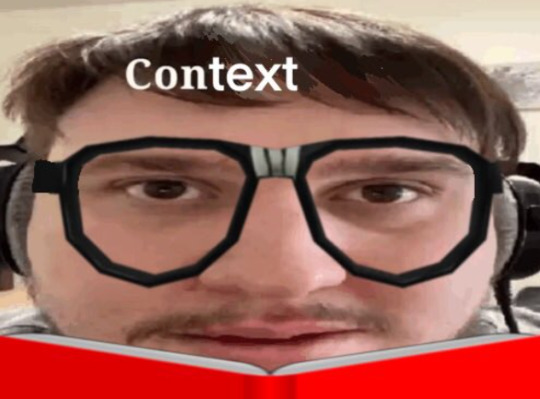
Firstly, let's look at everything in a grand scale of things.
I believe that the world of Mana, at its core, is fuelled by desire that got corrupted by the darkness that slithered its way from the abyss into this world. For millennia or centuries, these same desires have driven its cycles, repeating history in one way or another, compelling many generations to follow suit to ensure the safety of their world. Keeping the darkness at bay.
What if I told you that the prophecy isn't solely about Gillion? Instead, it’s about thousands of other chosen ones over centuries, all destined for the same purpose: to protect, to fight, and to avenge the darkness.
The descendants of Aster, children of the sun, were also born to always follow the same mission— to seal away the darkness.

Regarding the descendants of elemental casters, it's VERY speculative since we don't know enough about them. However, I believe they were destined to control the darkness, to take hold of it.
And for as long as this entity, this darkness, had such an effect on Mana, they joined forces to seal it away and safeguard their world.
But what if those cycles of history get suddenly shattered? Perhaps due to an unfulfilled deal, or maybe a deal never meant to be fulfilled… What if one of the descendants of the sun, blessed by Aster, who was meant to seal the darkness away, inadvertently unleashed it? Causing a disturbance in the universe, so violent and so unpredictable that it changes everything?

This disruption could make those united against the darkness to turn on each other, inadvertently allowing the darkness to thrive.
Rather than sealing the darkness, the descendants of the sun are harnessing it for destruction.
Instead of engaging in battle, the Tritons have retreated to the ocean's deepest depths, selecting a sacrificial lamb who would single-handedly play the role of a protector and bear the burden of this fight alone.
While the knowledge about the casters is limited, judging by this pattern, they likely grew weaker, most likely losing their ability to control the darkness altogether. It's probable that it became concealed.
(May explain why Chip's powers manifested very late—they were hidden away.)

Now, consider this. Jay Ferin, a child of the sun and descendant of those olympians, blessed by Aster; Gillion Tidestrider, a descendant of the Tritons or the Leviathans, blessed by Lunadeyis' light; and Chip, likely a descendant of the elemental casters mentioned in the prophecy, capable of grasping the darkness…
They stand as the ideal heroes of the story, maybe one of the only ones with the original, uncorrupted desire still burning within them, the ones to single-handedly save the world.
It makes a good story, doesn't it?
The sun, the moon, the elements.
Descendants of the three main bloodlines.
The unborn kings?
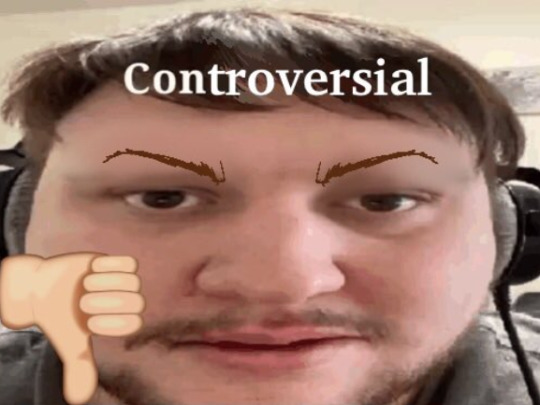
Now, let’s move to Niklaus for a moment.
Didn’t he say that he likes a good story?
But first, I'd like to believe that in the grand scheme of things, Niklaus is merely a vessel, born in the abyss, for this entity, this darkness that threatens the world. He is bound to be the one to further its corrupting influence. And maybe with all this power in his hands, many centuries ago, he even self-proclaimed himself as a prince.
Didn't Niklaus once describe himself as a storyteller? What if this storyteller is fated to witness a tale that endlessly repeats itself? Such repetition can grow tedious and mundane. So eventually, a simple desire emerges—to instigate change, to sow chaos, and perhaps to find an opportunity to break free from the chains binding him to this world.
A vessel for darkness, born in the abyss,
Bound to spread corruption,
A nameless prince:
Niklaus.
And then we have the guarding giant, still clinging to his original desire,
Holding the darkness at bay for as long as he can:
Arlin.
Does it make more sense now?
Now let’s take a look at things on a much smaller scale.
Have you ever wondered why Chip, Jay, and Gillion—a wannabe pirate, a soldier, and the champion of the Undersea, respectively—form such a fucking random assortment of people? The only thread connecting them seems to be their association with the Black Rose members. And their meeting feels like destiny, doesn't it? What if I told you it's not destiny at all, but rather the aftermath of Captain Rose's failed deal with Niklaus?
(Was the deal intentionally unfulfillable? Was it by accident? I dont fucking know!)

We know that whatever deal Captain Rose struck with Niklaus aimed to leave behind a legacy that would change the world. However, Rose failed to uphold his end of the deal, leading to his corruption and transformation into a goopy yucky—essentially, his deal backfired.
You might wonder, in what way it backfired? What better way to leave a lasting legacy than to trigger an event so impactful that it halts the endless cycle of history, disrupting the very mechanism that powers this world? To plunge the world into chaos, only to mend it once more, by bringing together the remaining group of individuals to retrace the steps of their ancestors—different people bound by the same desires as those that came before them.
Yes, the same desires.
The last thing Arlin, Drey, and Finn heard after releasing the entity from the egg was,
"What do you desire?"
What did Arlin James desire most?
I'd have two guesses.
Firstly, while discussing their desires on the staircase, Arlin expresses his desire to find the rest of the crew. Later, after Drey kills Rose, Arlin's words are: "There's still others that need our help [...] Adventure's not over."
Secondly, Arlin clearly wanted the best for Chip. He wanted to be there for this scrawny kid with no family or home, offering him something solid to hold onto.
Why do I bring this up? Because Arlin's desires have been passed down to Chip.
Firstly, hasn't Chip been chasing this his entire life? To locate the members of the Black Rose Pirates, to reassemble the crew, and to relive the old days.
Secondly, the dynamic between Chip and Ollie mirrors this relationship. While Ollie might be more like a brother to Chip and vice versa, it's evident to me that Chip cared for Ollie much like Arlin would for him. Just as Arlin gave Chip a coin, Chip passed that same coin on to Ollie.
What did Drey Ferin desire the most?
I believe he yearned to prove himself—not just to be another Ferin, but to establish his independence, to carve out a name for himself. Maybe he harboured hopes of achieving something significant, something that would make his father proud upon his return home.
Why do I bring this up? Because Drey's desires influenced Jay.
Jay Ferin ventures out with a mission: to uncover her sister's killer and exact justice upon the pirates that are responsible. And in doing so, she hoped to earn her father's pride. Maybe she also sought a sense of freedom and independence, desiring not to be entirely under the navy's influence.
What did Finn Tidestrider desire the most?
GAY SEX /J
Finn yearned to leave the Undersea, to broaden his research, and to witness the wonders of the world above first-hand. He aimed to dispel the notion that the surface was as intimidating as the Undersea made it out to be.
Why do I bring this up? Because Finn's desires influenced Gillion.
Who wouldn't, after years of rigorous training to become a champion—enduring beatings, breaking under relentless training, and being moulded into someone you're not—wish for it to cease, to break free and see the world for oneself? Upon witnessing the Elders negotiating with a human, perhaps it was that sight that pushed him over the edge. Maybe it was an impulsive decision, or perhaps it was his destiny all along. And once on the surface, Gillion's curiosity becomes evident. He wants to learn, experience, and judge for himself. Perhaps he also wishes to someday show his people that the surface isn't as menacing as they've been led to believe.
Niklaus was aware of all of this; he knows far more than he ever lets on. That's why, even before arriving in the town on Loffinlot, he was already trailing Chip, Jay and Gillion—the supposed heroes destined to save the world, or maybe aid him in fulfilling his own desire for freedom.
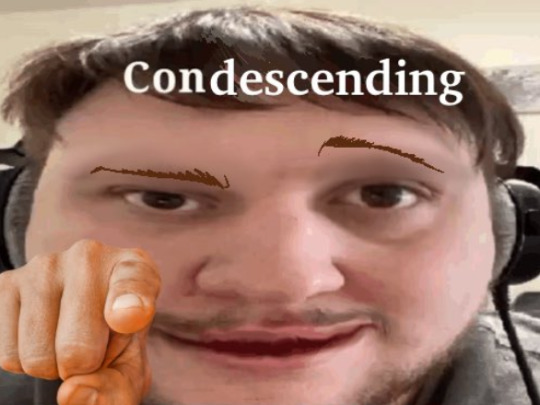
Closing thoughts?
This might be a load of bullshit!
I'm going to take a nap!

#featuring many variations of that one condifiction image to make your experience reading this bit more sillier#source: i made it the fuck up#jrwi riptide#just roll with it#jrwi#jrwi theory#gillion tidestrider#jrwi chip#jay ferin#niklaus hendrix
400 notes
·
View notes
Note
is there any way you can write a story where the reader and the 3 main actors for Pjo are doing a cast interview and the reader hasn't finished reading the books so they, mainly walker, like to joke about it.
YEAHH OKAY
warnings: fluff, reader is Rick Riordan's daughter, autowired interview, no use of y/n
requests are open!!

"What is Walker Scobell's favorite...Rick Riordan book?" Walker peeled the sticky piece of paper that covered the question off, crumpling it and adding it to the pile on the table.
"He said The Last Olympian yesterday, but he changes it literally every other day, so I don't think anyone can answer that one." Leah laughed, looking at Walker.
"Walker's favorite thing is just everything he doesn't dislike." You shook your head. "That's...well you don't even have a favorite Riordan book 'cause you've literally read half of the Lightning theif!" Walker gently hit you in the head with the question board, pretending to pout.
"Oh, that's true, I forgot about that. why didn't you read them? shouldn't you have gotten to read like...the first draft?" Aryan asked, leaning forward so he could see you from where he sat on the other side of Walker.
"...Well one, those books are older than me, and two, I'm gonna, because I'm being bullied and pure pressured by you guys. This is why Leah's my favorite." You got out of your chair and sat on the ground on the other side of Leah's, giggling.
Leah patted your head, nudging you lightly with her foot and grinning. "Okay...anyways, Mr. Rick said that he loosely based Annabeth off of her, which is cool 'cause it's like playing your best friend. All I had to do was copy how she acts, so it was really fun to like incoorperate it into my character while playing Annabeth."
"Leah's your favorite?" Aryan pretended to be offended, putting his hand over his heart.
"I think he gave Annabeth all your bad attributes."
"I think he casted you as Percy because you have the mentality of a squirrel."
"I think you guys shouldn't be saying this in front of a camera." Aryan put his arms out as if he were breaking up a fight, looking between the two of you and laughing.
"Who's peel is it?" You asked, sighing and putting your head in your palm.
"Yours. You messed up the rotation by moving your seat." Walker stuck his tongue out at you.
"This is exactly what I mean when I call myself a single mother of three guys." Leah put a thumbs up, pressing her lips into a line and nodding, while the rest of you giggled, knowing how chaotic the interview would be when you all watched it back.

taglist: @platypusbearrr @ilovewalkerscobell @pleasingregulus @paytonthereader @kissatelier @diorlorenzo @persassyxo @riptidelor @remussbitch @itzmeme
#x reader#annabeth chase#percy jackson#grover underwood#percy jackson x reader#walker scobell#leah sava jeffries#aryan simhadri#rick riordan
267 notes
·
View notes
Note
what are your thoughts on the olympians’ thrones? we know that they are connected to the power of the gods, and that kronos’ tactic was to destroy olympus/their thrones in order to weaken them (so when kronos destroyed the arm rest of ares’ throne, did that weaken him during the battle with typhon?)
but why should the destruction of their thrones weaken them? isn’t the source of their power, their divinity, well, themselves? and what of minor gods? or what about during the first titanomachy? sorry for the lengthy question but it’s all very confusing and im interested in hearing your take.
SO
THE OLYMPIAN THRONES
first let's see what Dionysus had to say about this in The Last Olympian
"Whichever! Now listen, the situation is graver than you imagine. If Olympus falls, not only will the gods fade, but everything that is connected to our legacy will also begin to unravel. The very fabric of your puny little civilization—"
"Yes, yes. Your entire society will dissolve. Perhaps not right away, but mark my words, the chaos of the Titans will mean the end of Western civilization. Art, law, wine tastings, music, video games, silk shirts, black velvet paintings—all the things that make life worth living will disappear!"
"—the other gods would never admit this, but we actually need you mortals to rescue Olympus. You see, we are manifestations of your culture. If you don't care enough to save Olympus yourselves—"
Let's look at the third part first! Dionysus tells us that the gods are manifestations of human culture. And as we know, in the RRverse, the gods have moved around with the flame of progression, where the most human power is allocated. This is why they are in the US in the RRverse, and why they tend to reflect a more American culture (ie, Zeus in a CEO suit, Poseidon as a fisherman, Ares is a biker, ect.)
So what I'm getting from Dionysus's explanation here, is that the gods and human culture are intrinsically intertwined with each other. You can't have one without the other and all that. If human culture fades, the gods weaken, and if the gods weaken, human culture fades.
Something interesting to note here is that Dionysus says that the gods will fade if their thrones are destroyed...interesting, considering Dionysus and Percy also discuss how Pan faded.
But Pan didn't fade because of a lack of human belief/culture - he faded because his domain was being destroyed. Helios and Selene faded because they lost faith in themselves.
I think Dionysus might be overexaggerating a bit here. I don't think the gods would have necessarily faded if their thrones were destroyed- just significantly weakened. And perhaps, weak enough that if they ever just decided to give up...they would fade.
(Which brings up an interesting notion of Dionysus fearing them fading, because maybe that implies he thinks not all of them have the willpower to push through that...food for thought)
Kronos destroying Ares's arm rest is curious, since after the defeat of Typhon, we see the Olympian gods and nothing is out of the ordinary, even with Ares. So I'm guessing the arm rest getting cut off didn't exactly affect Ares, but if a larger piece of the throne or even the throne itself was sliced up? We'd have a different story.
I believe the source of the gods' power comes from a variety of places- mortal belief, their thrones, and belief in themselves. We see the latter occurring with Apollo in The Tower of Nero especially, where he's able to bring himself back into immortality on his own willpower, and I think we even see this happening with Hades and Poseidon, leaving their respected realms to come to the aid of Olympus and leaving behind their grudge (Hades) and ego (Poseidon) for the greater good.
This brings up an interesting idea, then. The Olympians have three main sources of power. But are they even aware of the third?
Because think about it. People, in series and out, have automatically assumed Helios and Selene faded because of a lack of mortal belief. But, that is not what happened, for they were still majorly worshipped- instead, it was a lack of faith in themselves. They lost their sense of self.
So I think the "power ranking" of these sources go as follows;
Belief in self
Mortal belief
Thrones
Mortal belief is often talked about, especially in ToA where Nero tells us mortals gave him a prolonged life and eventually immortality. He does not have a throne like the Olympians, though he does have a fasces, where his immortality is stored.
Could it be that the Olympian's immortality is stored in their thrones? Maybe. But remember, Nero is a wannabe god. There has to be drawbacks to that, and I bet the fasces was one of them. He has to contain his immortality in something, while the Olympians do not, because they are immortal. Full stop.
Now minor gods...this is a bit trickier, but I think minor gods have a power scaling of their own. The Olympians are on another level for godly power- they are The Squad so to speak.
How powerful minor gods are I think depends on their domain, as well as mortal belief/their own belief.
Hecate, for example, is probably exceptionally powerful for a minor goddess because of her position as the goddess of magic, the Mist, and crossroads among other things (did you know she has some influence over prophecy? ;3 she and Apollo were two sides of the same coin when it came to prophecy).
Iris is probably not as powerful as Hecate is, because, uh, rainbows aren't exactly powerful when it comes to magic XD
As for the Elder Olympians' power during the Titanomachy...that's also interesting to think about. Imo, I think their power grew over the time of the war, since they didn't really have the opportunity to fine-tune anything what with being in Kronos's stomach and all lol
Zeus probably got more practice in when he was young, but probably not as much when he became cupbearer. And I also think the symbols of power of the Big Three help channel their power- which now has a funny image because here are the guys learning how to focus their power with training wheels while the girls are just fucking around and finding out.
Demeter probably strangled a few people with her plants. Hera probably unleased a hoard of peacocks on someone. Hestia no doubt set a few things on fire.
lmao, that's funny to think about.
Anyway, finally got around to this one!!! :D
#the oracle speaks#anon ask#asked and answered#the trials of apollo#ramblings of an oracle#trials of apollo#percy jackon and the olympians#pjo dionysus#pjo apollo#toa apollo#pjo zeus#pjo poseidon#pjo hades#pjo demeter#pjo hera#pjo hestia#the last olympian
131 notes
·
View notes
Text
I wanna talk about the main four mechanisms albums, and the ways in which they tackle tragedy. This shouldn’t be too long, and I’m kinda new to writing essays like this, but it seemed like fun.
Firstly OUATIS, I could go on and on abour OUATIS, like how the tragedy of OUATIS is baked into the genre. from the get go it’s about war and trauma and fascism, all things that while not exclusively, lend themselves to death and murder. You can listen to the first half of OUATIS and realize “oh shit, everyone involved is gonna die” by genre and the thematics of it alone.
Because that’s what war does
That’s what war is
For UDAD it’s a little more esoteric, and I probably have the least to say about it cuz it’s not my least Favoirte, not bad, just my least favorite. I think the best way to describe it is the line from twisted threads “how can you expect to escape if you were caught in a web before you began.” It’s made clear from the base set up that the olympians control everything, and as much as a heroic victory and triumph would be nice, some things just truly are too big to fail. Though arguably, amongst all the albums it has the best ending, the Olympians may not be brought down(in the album), the city might not be saved
But Ulysses gets to die, truly die and rest.
Something billions, perhaps trillions had stolen from them.
HNOC is definitely one of my favorites on this, being such a distinct and fun story and narrative. The tragedy is of the people themselves, and in a way I think it makes it the “most tragedy” out of the four, all of its preventable, yet entirely understandable. Hell, “just this once there could be a happy ending” is literally a line in it. Mordred’s actions are deplorable and violent and ruin everything but they’re understandable. He lost everything, why should the world live? It’s a dip into true nihilism and whag could lead someone to feel that way. Sometimes worlds are saved, and sometimes they aren’t. Sometimes worlds are killed, sometimes they simply grow old, but sometimes they kill themselves. And I think what makes it the most special compared to the other three is when it becomes doomed. OUATIS is about a bloody war, UDAD they were born into a web, TBI yhe conflict itself was resolved 80 years before the modern day the story is told through. But HNOC wasnt doomed from the start, the station wasn’t guaranteed to die, the Saxons weren’t guaranteed to be slaughtered. Yet nonetheless they were.
And finally TBI, now it’s what rly got my brain going on all of this, because I had the question “where does the tragedy become inevitable?” And frankly, there’s a lot of answers. TBI is doomed because the nuclear chaos was on its way before lyfrassir was even before. Because Odin wouldn’t stop no matter what. Because even if they hadn’t of messed with kyvasir there would have been dozens of other bifrost trains. But more than ALL OF THAT I think that the tragedy is inevitable because, as the album says. “A day, a week, a thousand years, means naught to what the train draws near.” It doesn’t matter, even if Loki’s missile had killed Odin and stopped the bifrost, someone else would have come along. Even the victory we got in the album itself, it wasn’t a victory, it was merely a prolonging, inevitable death was merely stalled, that’s the closest thing anyone could ever get to victory against the roiling nuclear chaos.
#the mechanisms#the bifrost incident#TBI#once upon a time in space#OUATIS#high noon over camelot#HNOC#UDAD#ulysses dies at dawn#essay
214 notes
·
View notes